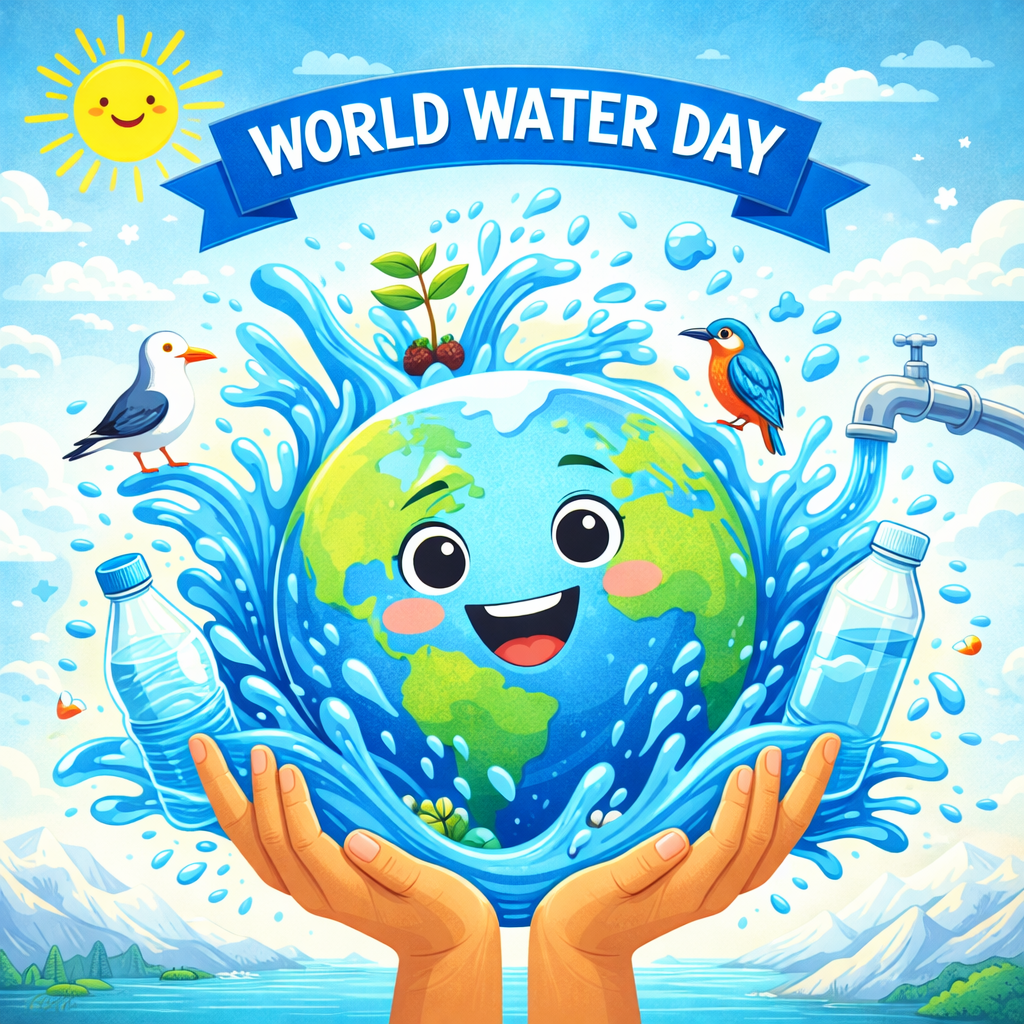What is World Water Day?
World Water Day is an annual event celebrated on March 22 to raise awareness about the importance of water, its conservation, and global access to clean water. Established by the United Nations in 1993, the day calls for action to tackle water-related challenges and support sustainable water management practices across the globe.

In 2026, World Water Day will emphasize the critical relationship between water and gender, under the theme "Water and Gender," highlighting the disproportionate burden women and girls face due to the global water crisis. This day underscores the need to empower women and ensure their active participation in water management, fostering gender equality in water-related decisions.
World Water Day 2026 Theme: "Water and Gender"
The World Water Day 2026 theme is "Water and Gender," which emphasizes the unequal burden that women and girls face in managing water resources. The theme explores how gender equality and safe water access are interlinked, and how empowering women and girls in water management can benefit everyone in society.
Key Aspects of the 2026 Theme:
Core Message: The theme calls attention to the disproportionate impact of the water crisis on women and girls and their exclusion from leadership in water management, sanitation, and decision-making.
Focus: The campaign promotes the empowerment of women by giving them a central role in designing water-related policies and systems, ensuring that gender equality is achieved across all water management efforts.
Global Call to Action: It calls for a transformative, rights-based approach to solving the water crisis, where women and girls are equally represented at all levels of water leadership.
When is World Water Day Celebrated?
World Water Day is celebrated annually on March 22nd across the globe. This date was designated by the United Nations in 1993 to commemorate and raise awareness about the importance of safe water and sustainable water management.
World Water Day 2026 will be observed on March 22, 2026.
Answer to Top Question:
When is World Water Day Celebrated?: March 22, every year.
Why is World Water Day Celebrated?
World Water Day is celebrated to highlight the importance of water conservation, raise awareness about water-related issues, and promote sustainable water practices. The observance urges governments, organizations, and individuals to act in safeguarding water resources to ensure universal access to clean water and sanitation for all.
In 2026, the theme is focused on gender inequality within water management and how empowering women and girls to take part in water-related decisions can improve water access and contribute to sustainable development.
Significance of World Water Day 2026
The theme "Water and Gender" for World Water Day 2026 focuses on the global water crisis and its impact on women and girls. Due to their responsibility for water collection and care for families, they are disproportionately affected by water scarcity and unsafe drinking water. This year’s theme advocates for their empowerment in water management, recognizing their voices in water policies and decision-making processes.
Key Message:
By ensuring women’s involvement in water leadership roles, we can create more inclusive, sustainable water systems that benefit everyone.
World Water Day 2026 Quotes
Here are some thought-provoking World Water Day quotes to inspire action for water conservation and gender equality:
"Water is life, but it is also a tool for empowerment."
"Where there is water, there is equality."
"Water is a human right, and women should lead the way."
World Water Day 2026 Activities and Celebrations
World Water Day is celebrated globally with various activities like educational programs, community-based events, and advocacy campaigns. In 2026, these celebrations will focus on water and gender equality, highlighting how women and girls are key to solving water issues.
Ideas for Participation:
Participate in Drawing Competitions: Create a World Water Day drawing or a World Water Day poster illustrating the importance of safe water and gender equality in water management.
Attend Webinars and Events: Engage in virtual events to discuss the importance of water conservation and women’s roles in decision-making.
Volunteer: Join local or online campaigns that raise awareness about water scarcity, gender equity, and safe sanitation.
Conclusion
World Water Day 2026 is not just about celebrating water; it's about recognizing the critical role of women in managing water resources and ensuring that gender equality is part of the global conversation on water and sanitation. By involving women and girls in decision-making, we can build a sustainable future for water management, ultimately improving lives for all.
Join the global effort on March 22, 2026, and let’s make water a force for gender equality and a better tomorrow for everyone.
FAQs on World Water Day 2026: Theme, Significance, and Celebration
1. When is World Water Day celebrated?
World Water Day is celebrated on March 22nd every year.
2. What is the theme of World Water Day 2026?
The theme for World Water Day 2026 is "Water and Gender," emphasizing gender equality and safe water access for women and girls.
3. Why is World Water Day celebrated?
World Water Day raises awareness about the importance of water and its sustainable management. It also highlights the global water crisis and the importance of inclusivity in water management.
4. What are World Water Day activities?
Activities include water-related educational programs, community events, drawing competitions, webinars, and advocacy campaigns focusing on water conservation and gender equality.
5. What is World Water Day 2026 theme?
World Water Day 2026 theme is "Water and Gender," focusing on gender equality and empowering women in water management.







